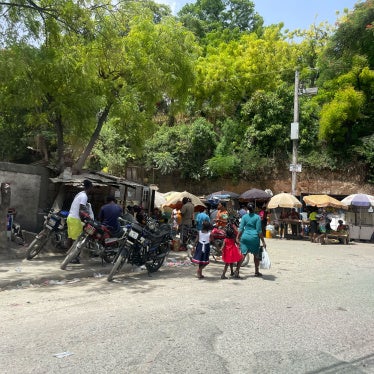The reform of law 26626 on HIV/AIDS is important, not just because it stipulates that the state must provide treatment to people living with HIV—essentially a step in the right direction. It is also important because the reformed law would force all pregnant women to undergo HIV testing—potentially a step back.
While making HIV counseling and testing broadly available is worthy of praise, we cannot support a move to eliminate the voluntary nature of the tests. International research suggests that mandatory HIV testing undermines human rights and is potentially detrimental for public health. Faced with potential discrimination if their test is positive, some women will prefer not to attend health centers that practice mandatory HIV testing. Moreover, more than 95 percent of pregnant women will choose to be tested for HIV if they are given the opportunity to choose.
Mandatory HIV testing threatens to create situations that favor a range of human rights violations. The rights under threat include the rights to nondiscrimination and bodily integrity, the right to be free from violence, and the right to the highest attainable standard of health. This is particularly true for many women, who already find their human rights may be threatened or violated on a daily basis because of their sex. In 1998, the United Nations issued guidelines on HIV/AIDS and human rights that strongly support voluntary—not mandatory—HIV testing as a critical part of the fight against AIDS. A legislative reform in favor of mandatory HIV testing for pregnant women flies in the face of established human rights standards on HIV/AIDS. Those who promote mandatory testing seem to think that forcing pregnant women to be tested for HIV may benefit women, at least when treatment is broadly available. This argument does not account for the potential adverse public health effects of mandatory testing. It also ignores Peru’s obligation in terms of human rights.
Prenatal health care provides a unique opportunity to provide life-saving information about HIV to many people. Where HIV testing is mandatory, pre-test counseling, in practice, will be inadequate because it is not needed to obtain the woman’s consent. Consequently, Peru will waste an opportunity to prevent the spread of HIV. Moreover, all states parties to the International Covenant on Economic, Social and Cultural Rights—including Peru—have an obligation to refrain from using coercive medical treatment, unless this is absolutely necessary to prevent the spread of a communicable disease. HIV/AIDS certainly is a communicable disease, but mandatory HIV testing is not necessary to prevent it from spreading.
In Peru, a particularly cruel dimension of the proposed reform to law 26626 is how it pits children’s rights against women’s human rights. The connotation of these arguments, put forward, amongst others, by the president of the congressional health commission, Daniel Robles, is that any woman who values her right to consent or not to HIV testing is failing her moral duties to her future child. This is a false dichotomy. One need not violate a woman’s human rights in order to protect those of a child, or to reduce the risk of HIV transmission to infants.
By switching to mandatory HIV testing during pregnancy, Peru would be abandoning a voluntary testing approach that was never properly implemented. In Peru, voluntary HIV counseling and testing programs have not received the support they need to function adequately. But the case for voluntary HIV testing is more than a mere programmatic option: voluntary HIV testing is clearly more effective than mandatory testing as a vehicle to disseminate HIV information and prevention services to more persons, including infants. Surely, that’s what the Peruvian Congress wants to promote.








